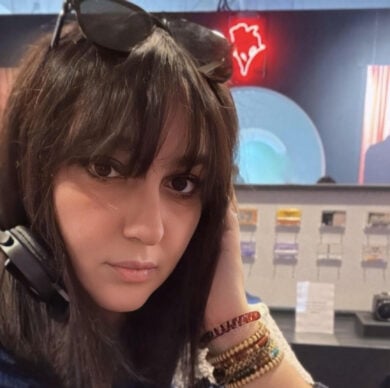South Korean artist PENOMECO is once again capturing the spotlight with his unique blend of genres, and this time, he’s diving deeper into the Afrobeats wave. His latest single, ‘BOLO (Feat. YDG)’ from the album [Organic], has garnered significant attention, setting the stage for his highly anticipated follow-up, [Organic2]. With the success of [Organic], it’s no surprise that PENOMECO is continuing his exploration of Afrobeats, making it a key element of his newest EP.
[Organic2] is a six-track EP, with three standout title tracks: ‘AURORA (Feat. Crush)’, ‘ASURABALBALTA’, and ‘SODA’. In this project, PENOMECO showcases his talents not only as a rapper but as a producer, crafting songs with a broader, more international audience in mind. The collaboration with R&B singer Crush on ‘AURORA’ highlights the EP’s star power, while the overall production is aimed at captivating global listeners. The sound is fresh, combining Afrobeats rhythms with PENOMECO’s signature K-Hip Hop flair.
For those unfamiliar, Jeong Dong-uk, better known by his stage name PENOMECO, is a well-established figure in the Korean hip-hop scene. He first made waves nearly a decade ago with his debut single ‘Right There’ and has since built a solid reputation. A member of the influential Hip Hop collective Fanxy Child—alongside Korean stars like ZICO, Dean, and Crush—PENOMECO has consistently pushed the boundaries of the genre.
Beyond [Organic2], PENOMECO has already proven his versatility and creativity. He previously dropped the acclaimed EP [Rorschach] Part 1, followed shortly by [Rorschach] Part 2. The latter included standout tracks like ‘X’, a four-minute anthem that blends 90s hip hop influences with modern Drill sounds. The production on ‘X’ is a journey in itself, but PENOMECO’s intense delivery and masterful flow take it to another level. The accompanying music video, set in expansive warehouses, mirrors his boundless energy and style, establishing his visual and artistic presence even further.
With [Organic2], PENOMECO continues to evolve, now offering his take on Afrobeats while staying true to his roots in K-Hip Hop. His ability to switch between different genres and styles keeps his discography fresh and exciting. It’s clear that he’s not just making music for the Korean scene anymore—he’s producing with global listeners in mind, signaling his ambition to take his sound beyond borders.
In a genre constantly shifting and growing, PENOMECO remains one of its most innovative figures, and [Organic2] is proof of his continued rise. Fans can expect more genre-blurring, boundary-pushing music as he cements his place in the global music scene.
Panorama.it spoke with him in an exclusive interview.
First of all, could you introduce yourself to Panorama’s readers who may not be familiar with PENOMECO?
Hello, Panorama readers! I’m glad to meet you through ‘Organic2’. I am a Korean artist, PENOMECO.
Your new album [Organic2] is receiving a lot of attention. Could you tell us what inspired you to create this project?
Three years ago, I released music in the Afro Beats genre under the name ‘Organic’. At the time, it wasn’t a well-known genre in Korea, so it was a big challenge for me, but I saw its potential. I continued to explore the Afro Beats genre, and the result of that journey is ‘Organic2’.
You’ve included 6 tracks on [Organic2], with three title tracks: ‘AURORA (feat. Crush)’, ‘ASURABALBALTA’, and ‘SODA’. What was the process behind selecting these songs as the title tracks?
It was simple. I played the songs for the people around me and selected the ones that received the best feedback. Besides, ‘SODA’ was my personal choice.
‘AURORA’ features Crush, another well-known artist. How did this collaboration come about, and what was it like working with him?
Before being an artist, Crush and I have been very close friends, so we always share and give feedback on each other’s work. At that time, Crush was also developing an interest in Afro Beats, so we naturally ended up working together.
You mentioned that you made [Organic2] with global listeners in mind. How did this influence the sound and style of the album?
I spent a lot of time thinking about how I could effectively blend my identity with this genre. While respecting the unique elements of the genre, I also worked to make my own identity approachable to people with different cultural backgrounds. A representative example of this effort is the song ‘ASURABALBALTA’.
The track ‘ASURABALBALTA’ has a really unique title. What does it mean, and how does it reflect the song’s theme?
‘ASURABALBALTA’ is a kind of spell. There are theories that it rooted-in Buddhism and others that originated from Korean folk beliefs, but its exact etymology is hard to pinpoint, with many interpretations. However, it’s a word that every Korean knows, much like a folk tune or a popular catchphrase that everyone is familiar with but no one knows who started. You could think of it as the Korean version of ‘Hakuna Matata’, which makes it easier to understand.
‘SODA’ is one of the standout title tracks. What message were you aiming to convey through this song?
I strive to showcase a wide range of music. As a result, my fans are divided between those who expect my newer self and those who look forward to my past work. However, even when I present something new, I always include a song that captures the unique emotion that only PENOMECO can bring. ‘SODA’ is like a promise to my longtime fans.
As a producer and an artist, how do you balance your creative vision when you’re crafting music for yourself versus other artists?
There’s often a lot of personal ambition and experimentation in my music, resulting in outcomes that I am not fully accustomed to yet. Some of it might even feel like a prototype. I believe it’s irresponsible to give untested ideas to other artists, so I experiment with my music first. Once those efforts are refined, they shine when I produce for others. My balance is in creating music that is both safe and effective, based on verified experiments and data.
Many fans remember your previous album [Organic] and the hit song ‘BOLO’. How does [Organic2] build on the themes and sounds from [Organic]?
‘Organic’, as the name suggests, has a raw, unrefined quality. If I compare it to a child who first discovers a new toy and becomes completely absorbed in it, ‘Organic2’ feels more like some child, now a boy, assembling his favorite toy from childhood piece by piece, creating his custom figure.
What was the most challenging part of creating [Organic2]? Was there a particular song that was more difficult to produce or finalize?
I think ‘respect’ was the most challenging aspect for me. While we live in an era that embraces cultural diversity and freedom of expression, I believe respect is always at the root of it all. Therefore, I aimed to express respect and homage to the originality of the genre in my music by incorporating the language of that culture and paying tribute to the artists who inspired me. While many people understood my intentions, others misinterpreted it as cultural appropriation, which was painful. I see this as a challenge I must continue to address moving forward.
You’re known for experimenting with different genres and sounds. Can we expect any surprises or unexpected elements on [Organic2]?
The word ‘ASURABALBALTA’ might be unfamiliar to people from other countries but I believe that just like for Koreans, it will naturally stay in their minds after listening to it, almost like a spell.
Looking at your career so far, what are you most proud of in terms of musical accomplishments, whether on [Organic2] or in your previous works?
My musical achievements are happening right now. As my past works have built up over time, they have shaped my artistry and identity as an artist. I’m incredibly proud that people are listening to my music not only in Korea but also in other countries. That’s why I’m doing this interview with Panorama right now, right? (laughs)
Finally, what message would you like to give to Panorama’s readers and your fans as they listen to [Organic2]?
Hello, Panorama readers and fans!! I’m so grateful and happy that you’re listening to my music from so far away. If my music can bring you even a little happiness, then that’s more than enough for me. Thank you for your support, and I really hope we get the chance to meet someday. BIG LOVE ❤️

